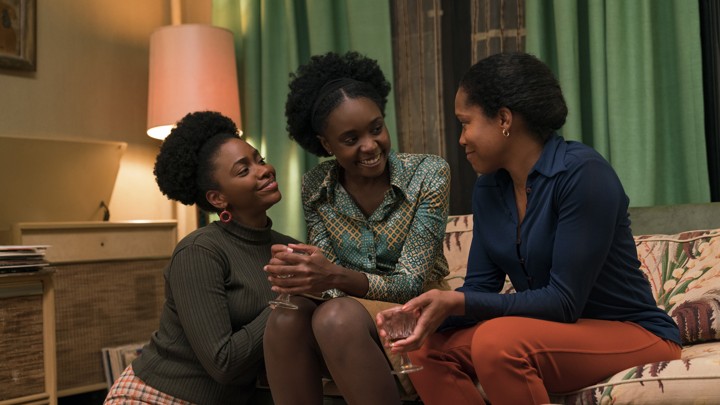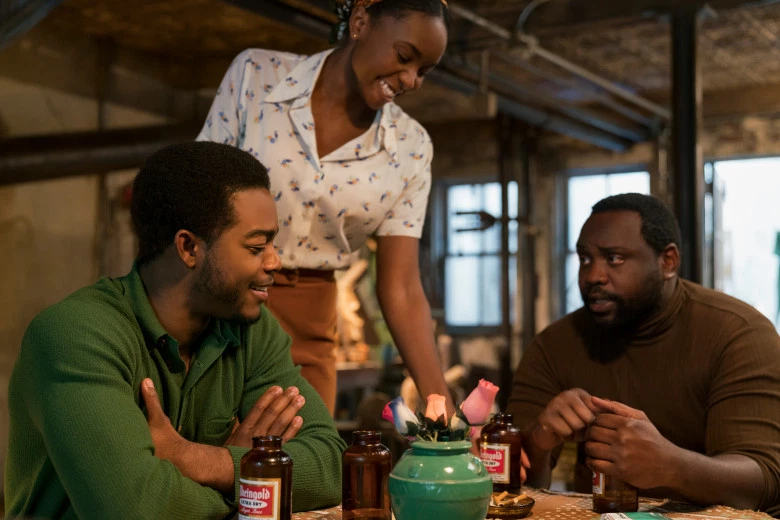If Beale Street Could Talk
15¦ blu-ray, DVDSo you manage to make a film (2008’s Medicine for Melancholy), which you write and direct. It’s critically acclaimed, but doesn’t find a wider audience.
So you go again, write and direct and send your baby out into the world. Knock knock. Who’s that at the door? It’s the 2017 Academy Awards calling with eight nominations to deliver. Oh by the way, we’ve got three Oscars for you too. Don’t mind if we do, thank you very much.
Clearly Barry Jenkins must have been under a fair amount of pressure for his follow up to his hugely successful Moonlight. For inspiration, he’s turned to the book If Beale Street Could Talk by James Baldwin.

I've drunk myself throughout this entire shoot, but it isn't really helping.
Tish (KiKi Layne) and Fonny (Stephan James) have been friends from childhood, hanging out in the same neighbourhood in New York City. Their relationship developed however when the pair became adults, so much so that at the age of nineteen, KiKi is pregnant with their first child.
This news should be greeted with joy, but it’s sadly overshadowed by the fact that Fonny finds himself in prison, charged with raping a woman. Tish is determined, along with the help of her family, to pay for a decent lawyer to get the charge overturned. But when the victim decides to leave the city, running off to another country, the likelihood of getting Fonny out diminishes considerably.

So I said 'Dude, i'll sign it, but there is no Paper Boi'!
After such overwhelming success so early on in your career must play on your mind a bit. And although there are positives here – admittedly only a few – this feature is an utter disappointment.
Jenkins manages to direct some of the most painfully stagnant scenes in recent memory. They barely drift, in any direction, and just appear to hang heavy in the air. They are so overly drawn out that they’re akin to having a visitor who completely outstays their welcome, and is utterly clueless that they’re doing so.
Sadly this isn’t an isolated incident, as it happens in scene after scene. After scene.
It’s bitterly disappointing, as it undoes glimpses of good work; in particular, an early scene featuring both families where some pleasingly sharp and sassy dialogue lets fly. The two leads also give so much of themselves, which despite being totally engaging, amounts to nothing in a poorly structured setting. The story itself is all rather limp too, and suffers from a lack of complete direction.
At two hours long, it stumbles around blindly like a drunk trying to find their way home, with no joy whatsoever.
Jenkins third feature then is one that should neither be seen nor heard.
